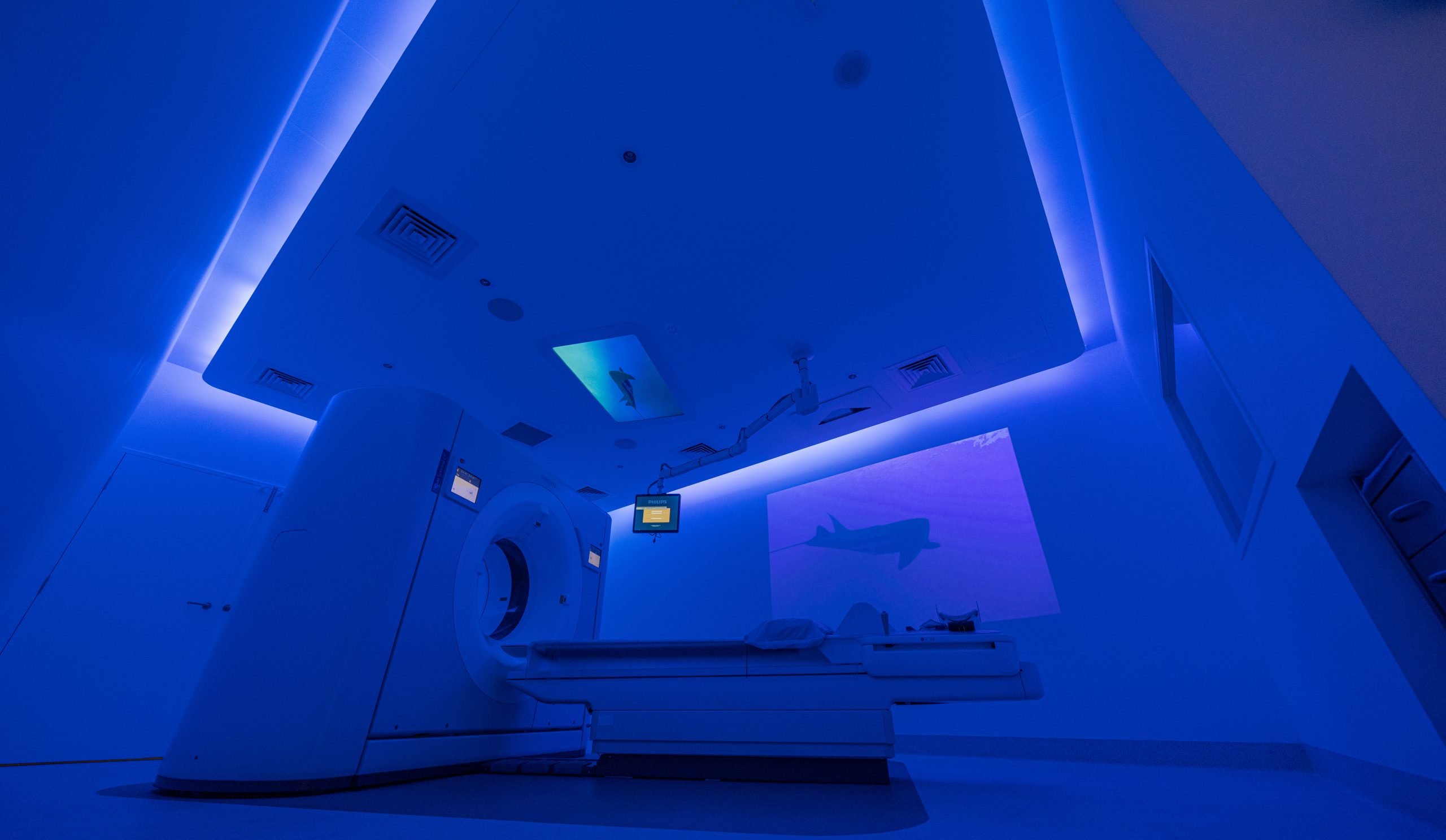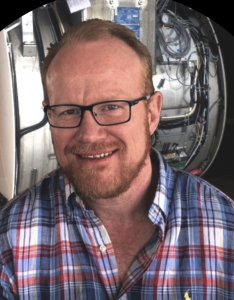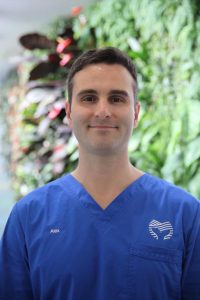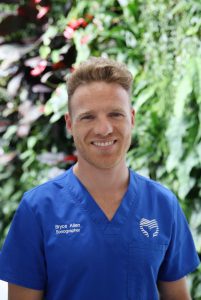SPECTRAL CT Scan Gold Coast
Our SPECTRAL CT scanner is a world-class Philips iQon CT that will ensure your first exam is the right exam. Conventional CT scans often produce ambiguous or inaccurate data that can require additional testing. For the best patient experience and to ensure you get the right diagnosis in the first scan insist on Spectral CT technology.
SPECTRAL CT Services:

What is a SPECTRAL CT ?
SPECTRAL CT is a way to visualize tissue composition with CT. The scanner is able to determine the atomic number of the tissues in the body and if patient has received contrast, SPECTRAL CT can determine the amount of iodine in the tissues, and virtually subtract the iodine. The energy of the reconstructed image can be altered on a a sliding scale enabling the radiologist to get deeper insights on your body than ever before.
Before a SPECTRAL CT
If you are feeling fit and well you will be allowed to go home immediately. Sometimes we might ask you to stay with us for 30mins at the Mermaid Beach Radiology Clinic to ensure you are ok, especially after having a contrast injection, however this is rare.
Our specialist doctors will receive the images generated by the scanner along with any relevant history and will interpret the results. A report will be created and sent to your GP or Specialist who will then discuss the results for you and any follow up treatment should you require any.
After a
SPECTRAL CT
A special dye called contrast material is needed for some CT scans to help highlight the areas of your body being examined. The contrast material blocks X-rays and appears white on images, which can help emphasize blood vessels, intestines or other structures.
Contrast material might be given to you:
By mouth. If your esophagus or stomach is being scanned, you may need to swallow a liquid that contains contrast material. By injection. Contrast agents can be injected through a vein in your arm to help your gallbladder, urinary tract, liver or blood vessels stand out on the images. You may experience a feeling of warmth during the injection or a metallic taste in your mouth.
By enema. A contrast material may be inserted in your rectum to help visualize your intestines. This procedure can make you feel bloated and uncomfortable.
What happens during my CT Scan?
Your CT scan will last ten to twenty minutes and will be performed by a radiographer. After changing your gown and ingesting contrast (if needed), you will be asked to lie on a flat bed.
The radiographer controls the scanner from another room so you will be alone. Don’t worry; the radiographer can hear and speak to you during the scan, keeping you calm if needed.
You will be asked to lie flat as the scanner moves over you, taking clear images of your body. During the scan, it’s common to be asked to breathe in or out or hold your breath for parts of the scan. This allows your lungs to move, allowing for clearer images where needed.
Are there any risks associated with having a CT scan?
There are very few risks associated with a CT scan. As part of a scan, you are briefly exposed to a low amount of ionising radiation. This radiation does not cause long-term harm, but if you have repeated CT scans, it can slightly increase the lifetime risk of cancer. This risk applies to children more than adults. While there is a risk, it is small, and the benefits of a CT scan outweigh the radiation dosage.
You should speak to your doctor before a CT scan if you are pregnant. CT scans are unlikely to harm your baby unless the scan is of your pelvis or baby. Your doctor might suggest a different exam to avoid exposing your baby to radiation.
Meet our experienced team of radiologists on the Gold Coast
Our Radiologist

Dr Zane Sherif
MBBS, FRANZCR
Mermaid Beach Radiology was founded in 2021 with the mission to provide personalised imaging for every client. The “cookie cutter” approach to imaging that exists at present makes little change between clients with different physiology and body types; and far too often the results are too ordinary. The experience of radiology high radiation dose, high noise and often not able to answer the clinical question.
Our MRI & Clinical Research Director

Ben Kennedy
MRI & Clinical Research Director
Ben Kennedy is currently the MRI Clinical and Research Director at Mermaid Beach Radiology. He has a master's degree in MRI from the University of Queensland and his specialties are sequence development and translation of research applications into clinical mainstream imaging. Ben has been an invited speaker at ISMRM, SMRT and ESMRB covering such topics as pulse sequence optimization, MRI physics and specialized clinical applications. Along with his current responsibilities at Mermaid Beach Radiology, Ben is also an Adjunct Research Fellow at the Menzies School of Health Research.
Our Chief Radiographer & SPECTRAL Scientist

Alex Ryvachuk
Chief Radiographer & SPECTRAL Scientist
Alex holds Bachelors Degrees in Biomedical Science and Radiography from Griffith and QUT, retrospectively. He has worked both publicly and privately spanning 16 years in Medical Imaging.He is both MRI and CT trained and experienced in all things SPECTRAL. He comes from a background of training and educating radiographers in advanced imaging techniques and is always happy to take the time to explain things to those not experienced in the medical field.
Alex is a caring and jovial person who enjoys being a dad, a friend and a team member. He loves travelling the world and waking up early to see his football team lose.
Our Head Sonographer

Bryce Allen
Head Sonographer
Bryce is head sonographer of Mermaid Beach Radiology. He enjoys sucking at golf, performing dodgy renovations at home, and having a hack on his twinnie surfboard. Originating from Coffs Harbour, he, his wife and fur child have lived on the GC now for 10 years. He has worked with specialists in pain management, regenerative procedures, and early detection cancer biopsies, but his passion is for musculoskeletal ultrasound, in particular neurovascular pathology and sports injuries. MRI has always been gold standard for MSK, and it is his hope to advance ultrasound to match it.
Book a CT appointment at our Gold Coast clinic
A CT scan is a quick and easy way for your doctor to understand better what is happening in your body. There is a low chance of complications, making it a safe and painless option for most patients. Book an appointment at our Gold Coast clinic today to see what is happening in your body.
Hours of Operation
Monday – Friday 9:00am to 6:00pm
Saturday – Closed
Sunday – Closed
CT scan FAQs
Does Medicare cover a CT scan?
Medicare covers CT scans when they are medically necessary. Medicare Part A covers the cost of a CT if you are in a hospital, hospice, or skilled nursing facility. Medicare Part B covers your CT scan as an outpatient.
Medicare will only cover a CT scan when necessary, such as part of diagnostic testing. You should check that your clinic accepts Medicare before booking your CT scan.
Are there any possible side effects of a CT scan?
There are few side effects of a CT scan, but some people can have an allergic reaction to the contrast dye used. This can cause difficulty breathing, sweating, and difficulty swallowing. During your thirty-minute wait after the CT scan, you should tell your radiographer if you feel unwell so they can continue to monitor you.
Are CT scans bulk billed?
We offer bulk billing through Medicare on certain examinations. Please contact us to see if your CT scan will be covered.
Do I need a referral for a CT scan?
A referral is needed for a CT scan with us at Mermaid Beach Radiology. You will need a referral from your practitioner or specialist before we can book you in for your CT scan.
When will I get my CT scan results?
Your CT scan results can take between one and two weeks to arrive. You will be contacted when your results are ready, and they will be delivered over the phone or during a follow-up appointment, during which you can see the scans and discuss your next steps.

